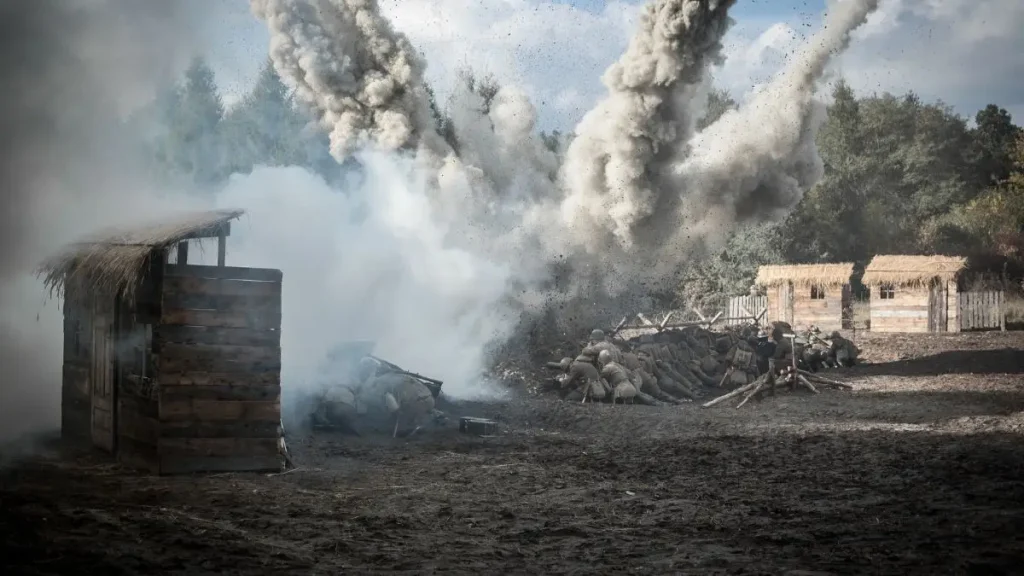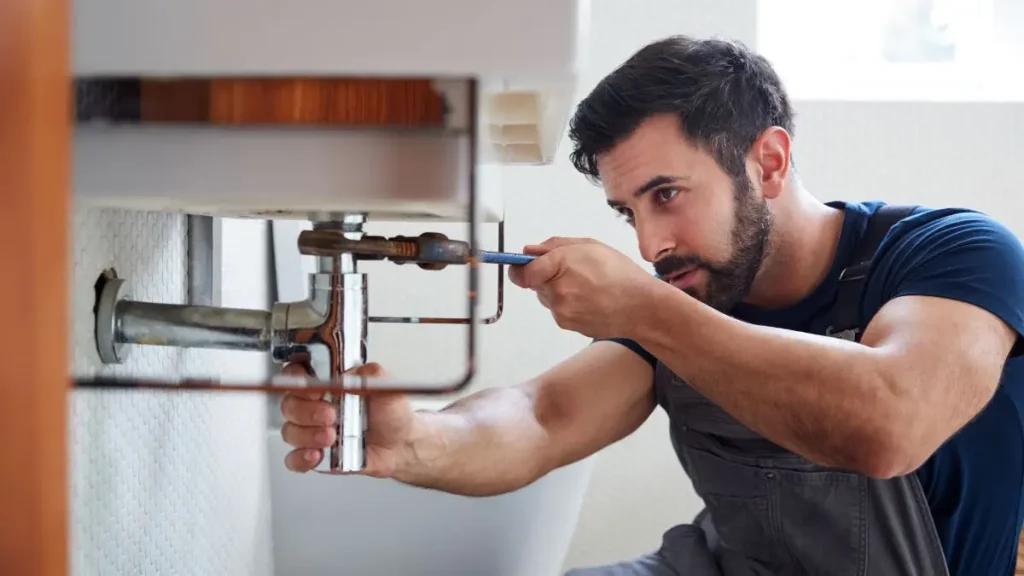Family of 3 Left Homeless After House Explosion in Baltimore County
I woke up today to the kind of news that makes you stop for a second: a house in Baltimore County exploded overnight — completely leveled — and somehow, no one was hurt. It happened around 2 a.m. in the Rosedale area on Tuesday, not far from where families were asleep and streets were silent. A family of three lived there. They weren’t home at the time. That detail alone is a miracle.
What’s left behind is rubble, a charred frame of what used to be someone’s everyday life — and a lot of questions. Neighbors reported hearing a blast that shook windows. One described it as “a war zone.” There was insulation in the trees, broken glass across lawns. Fire crews say the flames were under control by around 4 a.m., but the scene is still active. Utility lines have been shut off, and the cause is under investigation.
If you’ve ever wondered what it really means when the news says “a house exploded,” this is it. There’s no roof left. No rooms. Just debris where memories used to be.
And here’s the thing — it could’ve been any of us. A quiet street. A normal house. Then gone.
That’s why I’m digging into this story — not just what happened, but what it means. Not just the blast, but the gaps no one else is talking about. Why did it happen? Could it happen again? And most importantly: what should you do to make sure your home isn’t next?
Stay with me — we’re just getting started.
What Actually Happened — And When?
Let me walk you through how it unfolded.
According to CBS News Baltimore, the explosion happened around 2 a.m. on a quiet street in the Rosedale area of Baltimore County. The blast was strong enough to level the home completely. Within minutes, calls flooded 911. Firefighters arrived quickly and were able to bring the fire under control by just before 4 a.m.
The house was already gone by then.
The family who lived there — two adults and one child — weren’t home when it happened. That single fact saved three lives.
But the impact wasn’t limited to just one property. Debris flew across the neighborhood. Nearby homes were hit with shattered windows, insulation stuck to trees, and loose debris in yards. If you live in a similar area, this could feel way too close to home.
The Human Cost — Even Without Injuries
No one was physically hurt. But let’s not pretend there was no damage.
The family of three lost everything. Their home is gone. Clothes, furniture, childhood drawings, family photos — all reduced to ash and twisted metal. You can replace things, sure. But there’s an emotional punch in losing the space you built your life in.
And what about the neighbors? They woke up to a literal shockwave. One woman said she thought a bomb had gone off. Another said her windows rattled so hard she thought they’d break.
It’s moments like this that remind you how fragile daily life really is. It also raises real questions: Are our homes as safe as we think they are?
Similar heartbreak was felt during the Montgomery County house fire that left a family of four homeless — another reminder that safety doesn’t always come with a warning.
What Officials Are Saying — Investigation and Cause?
As of now, the cause of the explosion is still unknown.
Investigators are on the scene — local fire crews, Baltimore Gas & Electric (BGE), police, and federal agents from the ATF. The area has been secured, and utility services were shut off within hours of the blast. What they’re doing now is the slow, detailed part: sifting through rubble, checking for gas leaks, pressure lines, and anything else that could’ve sparked the blast.
But here’s the thing — official details have been limited. The Baltimore County Fire Department shared a brief but important update on their Facebook page, confirming that one home was destroyed, another was damaged, and no injuries were reported. They haven’t said what caused it — just that the investigation is active and ongoing.
That silence is understandable. It takes time. But I also know how unsettling it feels as a neighbor or homeowner to not have answers yet. You start wondering: could this happen to my house? Do I need to get my gas lines checked?
If you’re asking those questions, you’re not overreacting — you’re being smart. I’ll get into what steps you can take in the next few sections, but for now, it’s clear this wasn’t just a random spark. Something failed. And we all need to stay alert until we know what.
How the Community Reacted in Real Time?
In the hours after the explosion, the neighborhood didn’t just go silent — it came alive with concern.
People stepped outside. Some checked on elderly neighbors, others grabbed phones to record what they were seeing: smoke rising, emergency lights flashing, firefighters working through chaos. Within minutes, photos and videos started circulating across group chats and neighborhood apps like Next door. That’s how most of us hear about these events now — through people we know, not the news.
You could feel the anxiety in every conversation. Was anyone inside? Did other homes catch fire? Was this caused by gas? Those were the questions flying around as folks stood outside, trying to make sense of it.
There’s something raw and real about how a community reacts to crisis. You don’t plan it. It just happens. But in that moment, you also realize how connected you are — even if you’ve never said more than “good morning” to your neighbor before.
Have you ever witnessed or experienced something like this in your neighborhood? Drop your thoughts or stories in the comments — your perspective might help others feel less alone.
Other Recent Explosions in the Region — A Troubling Pattern

This isn’t a one-off incident.
If you’ve lived in or around Baltimore County for a while, you might remember similar blasts in recent years. In early 2024, a house in Harford County exploded, killing one person and damaging several nearby homes. In 2020, a deadly gas explosion in Northwest Baltimore tore through a row of townhouses, leaving multiple families devastated.
What’s scary is that these incidents are starting to feel less like rare flukes and more like warnings. And no one seems to be connecting the dots.
That’s why I’m mentioning them here — not to scare you, but because I believe patterns matter. If we ignore them, we’re just waiting for the next headline to hit.
So ask yourself this: How often do you think about the gas lines under your house? Do you know when they were last checked? I didn’t either — until stories like this kept showing up year after year.
And just a few months ago, the Philly explosion that killed one and injured two showed how fast things can escalate — multiple homes wiped out in minutes.
What Happens Next for the Family — And the Neighborhood?
Right now, the family that lost their home is safe but displaced. I haven’t seen a formal fundraiser or Red Cross alert go live yet, but based on similar incidents, temporary housing and emergency aid are likely already in motion.
If you’ve ever had to leave your home unexpectedly — even for a few nights — you know how quickly things spiral. No clothes, no charger, no documents. Now imagine that, with your entire house gone behind you.
Neighbors are still rattled. The structure next door took damage. Everyone’s waiting for safety clearances, insurance reps, and updates from investigators. The emotional weight of seeing a house reduced to rubble on your block — that doesn’t fade in a day or two.
If you’re nearby, consider checking in on folks. Sometimes just asking “Need anything?” is more helpful than you think.
These situations feel even more personal when you see how often they happen — like the Northeast DC row house fire that displaced five residents.
What You Can Do to Protect Your Home from Gas Disasters?

This part matters the most — because you can’t control explosions, but you can reduce the risk inside your own walls.
If your home uses gas, here are some basic things I’d urge you to do — not later, this week:
- Schedule a professional gas line inspection if it hasn’t been done in years
- Install a gas leak detector — not just a smoke alarm. These are affordable and save lives
- Know the smell — that rotten egg odor means danger
- Teach your family how to shut off the main line in case of emergency
- Don’t ignore small signs — strange noises, flickering flames, or sudden headaches
You’d be surprised how many homeowners never get this checked until it’s too late. I used to be one of them. Now, I keep a printed checklist on my fridge. Just in case.
The National Fire Protection Association (NFPA) and BGE both offer solid home safety guides. I’ll link them at the end of this article.
By the way — I’ve seen more and more local updates about fires and explosions pop up in real-time community feeds. One of the fastest ways I stay informed these days is through a WhatsApp news alert channel I’m part of. Worth checking out if you want fast, local updates that don’t rely on national coverage.
Final Thoughts
I don’t think this explosion is just a Baltimore story — it’s an every-neighborhood story.
We all have routines. We leave the house, turn on the stove, trust the pipes, trust the grid. But when something this destructive happens without warning, it shakes that trust. And maybe that’s the point — maybe it’s a push to stop assuming everything’s fine.
For me, this was a reminder to stop putting off the boring-but-important stuff. Home safety checks. Emergency plans. Backups. Conversations that start with, “What if…”
You don’t have to live in fear. But you do have to stay alert.
If stories like this matter to you, explore more real-life incident breakdowns and safety insights on our our website — we cover what others overlook.
Disclaimer: The information in this article is based on currently available reports. Investigation details may change as new updates emerge. Always follow official guidance from local authorities and safety agencies.


